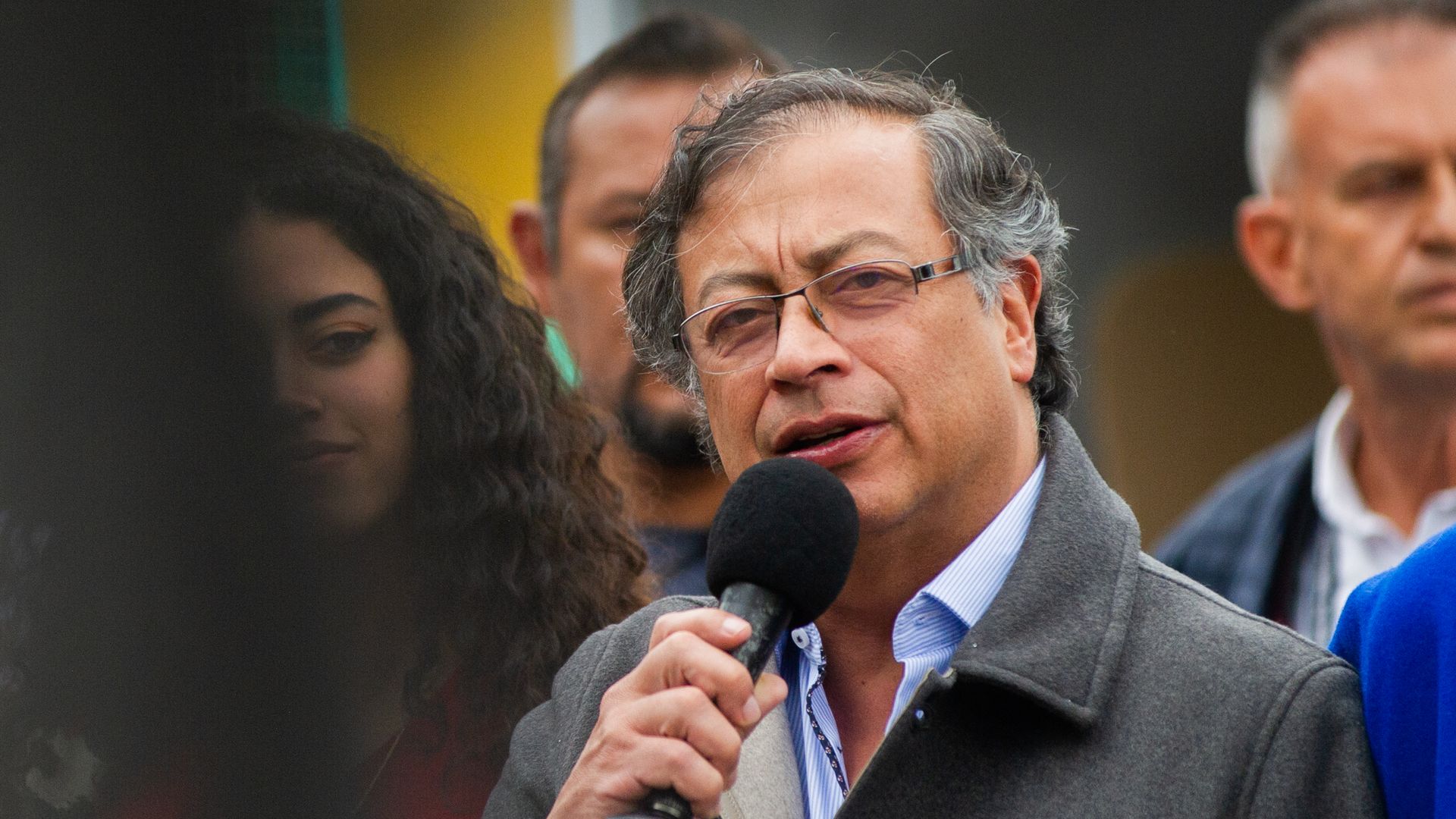Colombia's incoming leftist president to push for major police reforms
Add Axios as your preferred source to
see more of our stories on Google.

Gustavo Petro at an event in June. Photo: Sebastian Barros/NurPhoto via Getty Images
Colombian President-elect Gustavo Petro is planning to push for major police and justice system reforms when he takes office next month.
The big picture: Petro will be inaugurated Aug. 7 as the country’s first leftist president, which has generated massive expectations — and fears among some critics — about his many proposed changes.
State of play: Petro wants to move national police from the Defense Ministry to a yet-to-be created peace ministry.
- Under the Defense Ministry, the national police force has become more militarized and there's been little accountability for police brutality, experts say.
Petro also wants to eliminate a major branch of the federal attorney general’s office called the procuraduría.
- Petro plans to replace the procuraduría, which deals with administrative sanctions on officials, with an anti-corruption office. Esteban Salazar, chief researcher of policy and governance for the nonpartisan think tank Fundación Pares, tells Axios Latino the procuraduría has been used for political retribution.
- Petro also wants to increase prosecution of unpunished killings and acts of violence by criminal groups, as well as violence against women and children.
- In addition, he wants to prioritize rehabilitation to reduce the prison population and recidivism.
Driving the news: Despite the fact that he's not in office yet, Colombia’s Congress will consider Petro-backed changes to the national police when it starts its session on Wednesday.
- Petro probably has the votes needed to pass legislation, thanks to newly formed coalitions with centrist parties.
Between the lines: Colombia’s justice system has been criticized for being ineffective in a country marked by a 50-year conflict and enduring violence even after a peace deal was signed in 2016.
- Fewer than 1% of criminal cases are resolved, Salazar said.
What they’re saying: If Petro manages to get even 10% of his overall measures through, "he’ll already have done more than has been done in the past 50 years in this country in that regard,” Salazar said.
Subscribe to Axios Latino and get more news that matters about Latinos and Latin America, delivered right to your inbox on Tuesdays and Thursdays.
